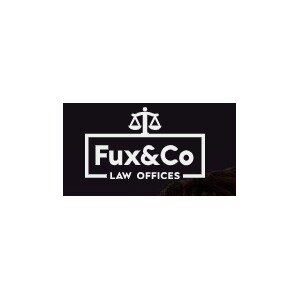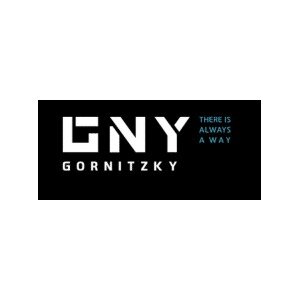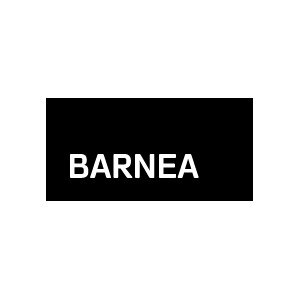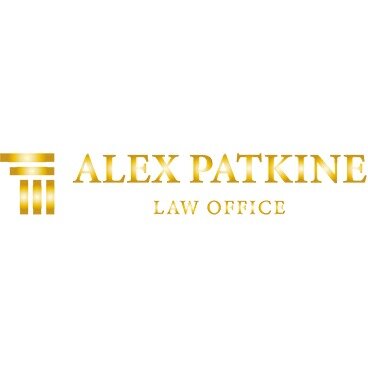Best Private Equity Lawyers in Tel Aviv
Share your needs with us, get contacted by law firms.
Free. Takes 2 min.
List of the best lawyers in Tel Aviv, Israel
About Private Equity Law in Tel Aviv, Israel
Tel Aviv is considered Israel’s leading financial center and a robust hub for private equity activities in the Middle East. Private equity refers to investment funds, usually organized as limited partnerships, that buy and restructure companies that are not publicly traded. The city is home to numerous venture capital firms, private equity houses, and emerging startups, making it a focal point for transactions, investments, and legal work in this field. Legal professionals in Tel Aviv routinely advise on fund formation, due diligence, mergers and acquisitions, exit strategies, regulatory compliance, and dispute resolution related to private equity transactions.
Why You May Need a Lawyer
There are several situations in which you might require legal guidance related to private equity in Tel Aviv. Common scenarios include:
- Forming or investing in a private equity fund
- Structuring or negotiating buyout or acquisition deals
- Conducting due diligence on target companies
- Drafting and reviewing investment agreements
- Addressing regulatory compliance including reporting obligations
- Resolving disputes between investors, fund managers, or portfolio companies
- Dealing with cross-border transactions or international investors
- Managing exit strategies like IPOs, secondary sales, or mergers
- Protecting intellectual property and confidential information
- Tax planning and structuring transactions efficiently under local tax laws
A lawyer with expertise in private equity can guide you through complex legal, financial, and regulatory matters and help minimize risks while maximizing investment opportunities.
Local Laws Overview
Israel’s legal landscape for private equity is shaped by both local legislation and international standards. Here are key aspects relevant to Tel Aviv:
- The Limited Partnerships Ordinance governs the formation and management of private equity and venture capital funds.
- Securities transactions are regulated by the Israeli Securities Authority, which oversees disclosure, reporting, and investor protection requirements.
- Antitrust Law (Economic Competition Law, 1988) may be relevant in acquisition deals to prevent anti-competitive practices.
- Taxation of private equity deals is addressed by the Israeli Tax Authority, with specific rules for capital gains, corporate taxation, and cross-border investments.
- The Companies Law, 1999 provides the framework for the formation, restructuring, and governance of companies, which can impact buyouts, mergers, and other equity transactions.
- Certain transactions may require regulatory approval, such as from the Ministry of Economy or sector-specific agencies, particularly in tech, healthcare, and defense sectors.
- Employment and intellectual property laws also have significant bearing on private equity investments involving innovative or technology-driven companies.
Legal professionals in Tel Aviv are experienced in navigating the complex interplay of these regulations to support both local and international stakeholders in the private equity ecosystem.
Frequently Asked Questions
What is private equity and how does it work in Tel Aviv?
Private equity involves investing in private companies or taking public companies private, with the aim of improving business performance and eventually selling the investment for a profit. In Tel Aviv, private equity firms play a major role in the startup and high-tech sectors.
What are the main laws governing private equity in Israel?
The Limited Partnerships Ordinance, Companies Law, Securities Law, Tax Ordinance, and Antitrust Law are the main legislative frameworks affecting private equity in Tel Aviv.
Do private equity funds in Tel Aviv need to register with regulators?
Registration requirements depend on the fund’s structure and investor profile. Some funds must register with the Israeli Securities Authority, especially if they target retail investors, while others catering to sophisticated investors may be exempt from certain regulations.
Can foreign investors participate in private equity in Tel Aviv?
Yes, Israel welcomes foreign investors. However, foreign investments in sensitive sectors may require additional review or approval to comply with national security laws.
What is the due diligence process in a private equity transaction?
Due diligence involves a thorough review of the target company’s financials, legal status, contracts, intellectual property, employment matters, compliance, and potential liabilities before completing an investment.
Are there specific tax implications for private equity investments in Israel?
Yes, private equity transactions can trigger capital gains, corporate, and sometimes withholding taxes. Tax planning and structuring are essential to ensure compliance and optimize after-tax returns.
What are common exit strategies for private equity investments in Tel Aviv?
Popular exit strategies include initial public offerings (IPOs), secondary sales to other funds, mergers or acquisitions, and occasionally share buybacks by the portfolio company.
How are disagreements between fund managers and investors resolved?
Most private equity agreements include dispute resolution clauses that specify negotiation, mediation, arbitration, or litigation in certain circumstances, often governed by Israeli law or specified international arbitration rules.
What role do lawyers play in fund formation and management?
Lawyers help structure the fund, draft agreements, ensure regulatory compliance, create tax-efficient vehicles, and advise on ongoing legal matters throughout the life of the fund.
How long does a typical private equity transaction take in Tel Aviv?
Transaction timelines can vary but often range from several weeks to several months, depending on complexity, due diligence findings, and regulatory approvals required.
Additional Resources
If you need more information or assistance, consider contacting or reviewing these resources:
- Israeli Securities Authority - offers regulatory guidance and investor protection resources
- Israeli Ministry of Economy and Industry - provides information on foreign investment procedures
- Israel Innovation Authority - supports technology investment and startups
- Israeli Bar Association - for locating lawyers specializing in private equity and commercial law
- Israel Advanced Technology Industries (IATI) - represents venture capital and private equity stakeholders
Many private equity law firms in Tel Aviv also publish helpful guides and updates on regulatory developments.
Next Steps
If you are seeking legal assistance in private equity in Tel Aviv, consider the following steps:
- Identify the specific issue or transaction you need help with, such as fund formation, due diligence, or dispute resolution
- Gather relevant documents and information about your situation or investment
- Consult with a qualified lawyer who has expertise in private equity transactions and is familiar with local regulations
- Prepare your questions and concerns in advance to ensure an efficient consultation
- Stay updated on any regulatory changes that could affect your investment or business activities
A knowledgeable private equity lawyer in Tel Aviv can help you navigate the legal and practical challenges of investing or operating in Israel, ensuring that your interests are protected and that your transactions comply with all applicable laws.
Lawzana helps you find the best lawyers and law firms in Tel Aviv through a curated and pre-screened list of qualified legal professionals. Our platform offers rankings and detailed profiles of attorneys and law firms, allowing you to compare based on practice areas, including Private Equity, experience, and client feedback.
Each profile includes a description of the firm's areas of practice, client reviews, team members and partners, year of establishment, spoken languages, office locations, contact information, social media presence, and any published articles or resources. Most firms on our platform speak English and are experienced in both local and international legal matters.
Get a quote from top-rated law firms in Tel Aviv, Israel — quickly, securely, and without unnecessary hassle.
Disclaimer:
The information provided on this page is for general informational purposes only and does not constitute legal advice. While we strive to ensure the accuracy and relevance of the content, legal information may change over time, and interpretations of the law can vary. You should always consult with a qualified legal professional for advice specific to your situation.
We disclaim all liability for actions taken or not taken based on the content of this page. If you believe any information is incorrect or outdated, please contact us, and we will review and update it where appropriate.

















